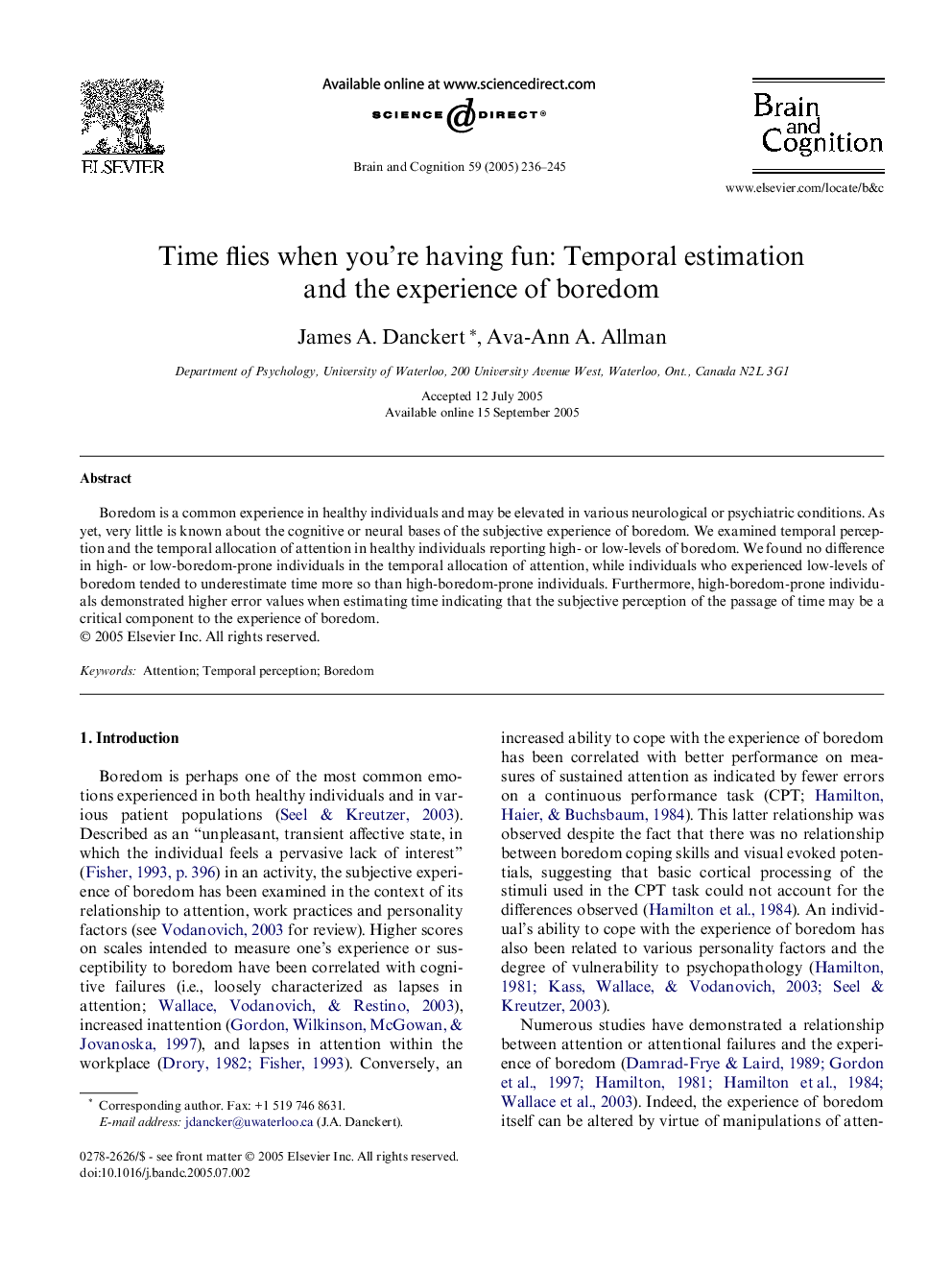| Article ID | Journal | Published Year | Pages | File Type |
|---|---|---|---|---|
| 10455589 | Brain and Cognition | 2005 | 10 Pages |
Abstract
Boredom is a common experience in healthy individuals and may be elevated in various neurological or psychiatric conditions. As yet, very little is known about the cognitive or neural bases of the subjective experience of boredom. We examined temporal perception and the temporal allocation of attention in healthy individuals reporting high- or low-levels of boredom. We found no difference in high- or low-boredom-prone individuals in the temporal allocation of attention, while individuals who experienced low-levels of boredom tended to underestimate time more so than high-boredom-prone individuals. Furthermore, high-boredom-prone individuals demonstrated higher error values when estimating time indicating that the subjective perception of the passage of time may be a critical component to the experience of boredom.
Keywords
Related Topics
Life Sciences
Neuroscience
Cognitive Neuroscience
Authors
James A. Danckert, Ava-Ann A. Allman,
